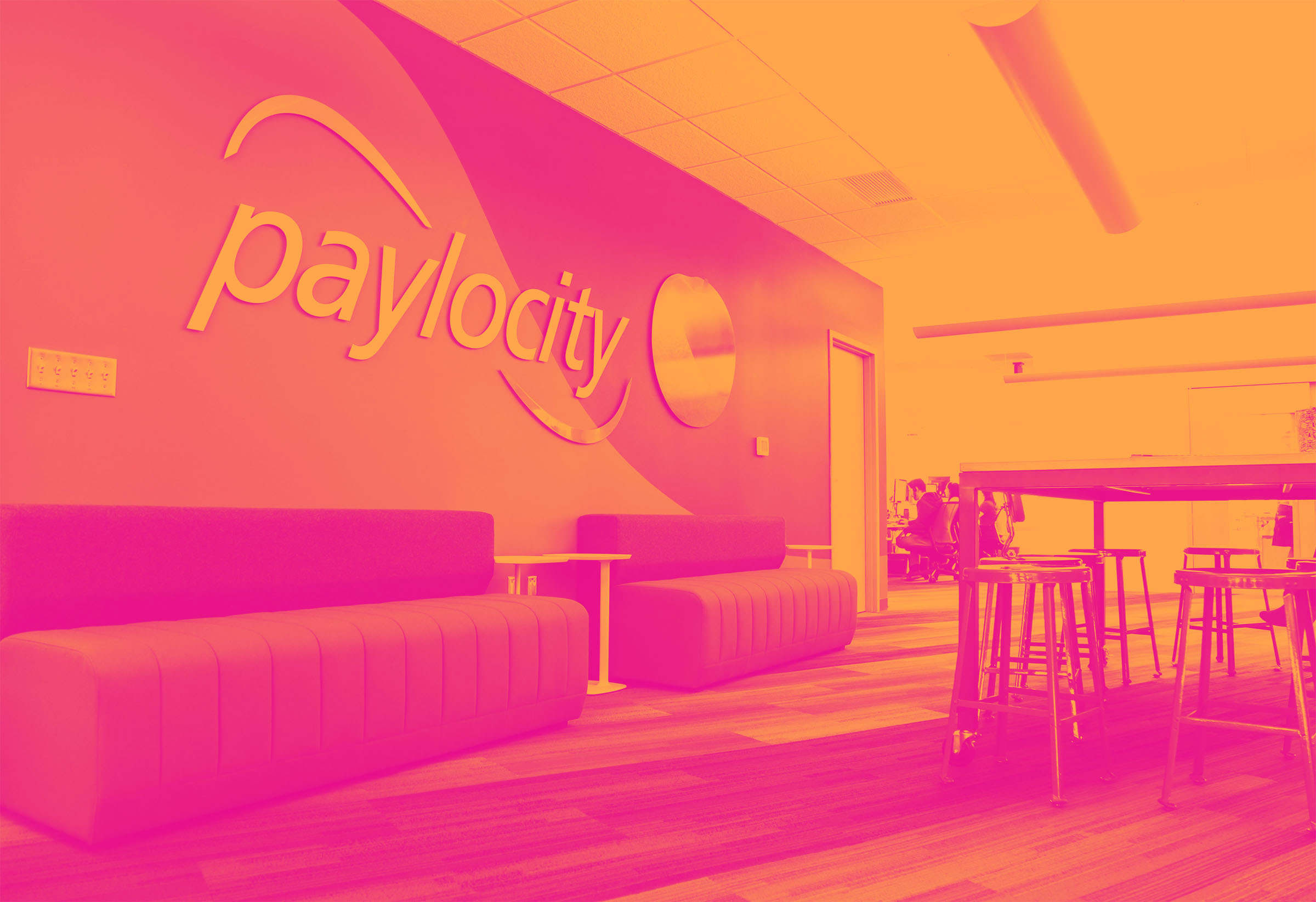
A company that generates cash isn’t automatically a winner. Some businesses stockpile cash but fail to reinvest wisely, limiting their ability to expand.
Luckily for you, we built StockStory to help you separate the good from the bad. Keeping that in mind, here are three cash-producing companies to steer clear of and a few better alternatives.
Paylocity (PCTY)
Trailing 12-Month Free Cash Flow Margin: 21.6%
Founded by payroll software veteran Steve Sarowitz in 1997, Paylocity (NASDAQ: PCTY) is a provider of payroll and HR software for small and medium-sized enterprises.
Why Are We Wary of PCTY?
- Estimated sales growth of 8.1% for the next 12 months implies demand will slow from its three-year trend
- Gross margin of 68.8% reflects its relatively high servicing costs
Paylocity’s stock price of $180.38 implies a valuation ratio of 6.1x forward price-to-sales. If you’re considering PCTY for your portfolio, see our FREE research report to learn more.
Bath and Body Works (BBWI)
Trailing 12-Month Free Cash Flow Margin: 10.6%
Spun off from L Brands in 2020, Bath & Body Works (NYSE: BBWI) is a personal care and home fragrance retailer where consumers can find specialty shower gels, scented candles for the home, and lotions.
Why Does BBWI Worry Us?
- Weak same-store sales trends over the past two years suggest there may be few opportunities in its core markets to open new locations
- Estimated sales growth of 2.2% for the next 12 months implies demand will slow from its six-year trend
- Earnings growth underperformed the sector average over the last six years as its EPS grew by just 8.6% annually
At $32.24 per share, Bath and Body Works trades at 8.8x forward P/E. Dive into our free research report to see why there are better opportunities than BBWI.
CBRE (CBRE)
Trailing 12-Month Free Cash Flow Margin: 3.7%
Established in 1906, CBRE (NYSE: CBRE) is one of the largest commercial real estate services firms in the world.
Why Should You Dump CBRE?
- Scale is a double-edged sword because it limits the company’s growth potential compared to its smaller competitors, as reflected in its below-average annual revenue increases of 8.3% for the last five years
- Responsiveness to unforeseen market trends is restricted due to its substandard operating margin profitability
- Low free cash flow margin of 2.6% for the last two years gives it little breathing room, constraining its ability to self-fund growth or return capital to shareholders
CBRE is trading at $141.02 per share, or 23x forward P/E. Check out our free in-depth research report to learn more about why CBRE doesn’t pass our bar.
Stocks We Like More
The market surged in 2024 and reached record highs after Donald Trump’s presidential victory in November, but questions about new economic policies are adding much uncertainty for 2025.
While the crowd speculates what might happen next, we’re homing in on the companies that can succeed regardless of the political or macroeconomic environment. Put yourself in the driver’s seat and build a durable portfolio by checking out our Top 5 Growth Stocks for this month. This is a curated list of our High Quality stocks that have generated a market-beating return of 183% over the last five years (as of March 31st 2025).
Stocks that made our list in 2020 include now familiar names such as Nvidia (+1,545% between March 2020 and March 2025) as well as under-the-radar businesses like the once-micro-cap company Kadant (+351% five-year return). Find your next big winner with StockStory today for free. Find your next big winner with StockStory today. Find your next big winner with StockStory today
StockStory is growing and hiring equity analyst and marketing roles. Are you a 0 to 1 builder passionate about the markets and AI? See the open roles here.




